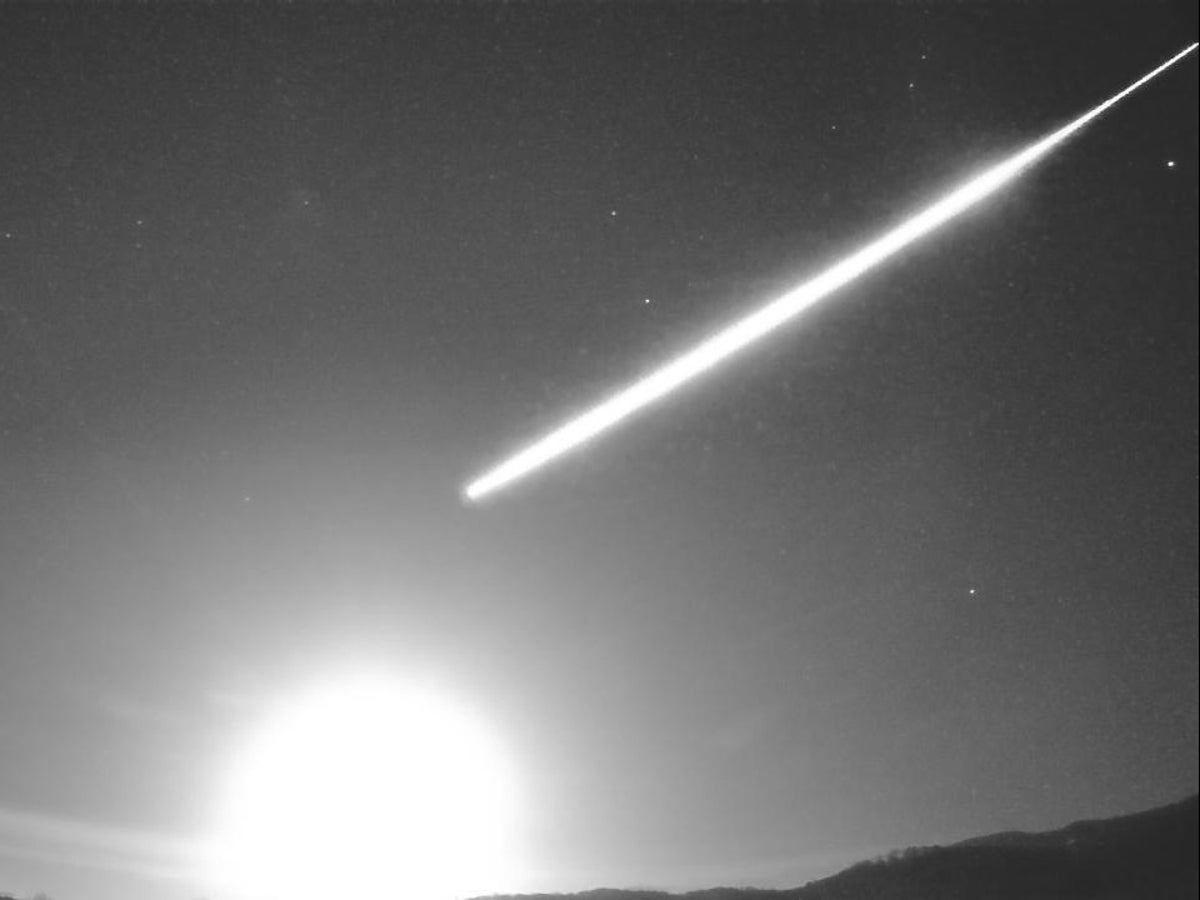
A large meteor was seen streaking through the night sky over the UK on Monday.
The Met Office confirmed that a meteor had been spotted after dozens of people took to social media to report what they had seen.
Photographs captured by automatic cameras as part of the UK Meteor Network (UKMON) showed an explosion of light cast across the sky at around 8.01pm.
Reports came from around the country. One Twitter user said: “I’ve just seen a stunning meteor burning across the sky. It was so low down and clear and beautiful! Golden coloured.”
Another said they had seen the “most astonishing” meteor from Southampton, while another asked: “Did anyone else see a crazy meteor thing over Bath at about 8pm?”

“It had multiple discernible colours - blueish white core, bright red outline and streak – unlike anything I have ever seen,” they said.
Tom Tugendhat MP also reported a sighting “over Westminster”.
The UKMON has 186 cameras positioned around the UK which detect meteors in the sky and feed information to the Global Meteor Network.

Last year UKMON cameras recorded 1,615,558 meteors but very few of these would have been as clearly visible as Monday night’s.
The meteor that caused excitement around the country was what is known as a fireball, meaning it was brighter than Venus.
Around 50 fireballs were recorded over the UK last year.
There is an even rarer type of fireball, known as a bolide. These meteors have to be brighter than the moon and have the capacity to cast a shadow. Bolides are recorded only once a year or two.
Meteor observers were excited last year when a fireball seen over the UK appeared to drop a meteorite in south Wales.

The UK Fireball Association, which recorded the meteor, asked residents of Bridgend to search for the space rock but no one reported it found.
Scientists said that a meteorite which landed in Winchcombe, Gloucestershire in 2021 contained clues to the origins of water, and possibly life, on Earth.
The rock contained water, further contributing to a growing scientific consensus that asteroids contributed a significant amount of water in the early days of Earth.







